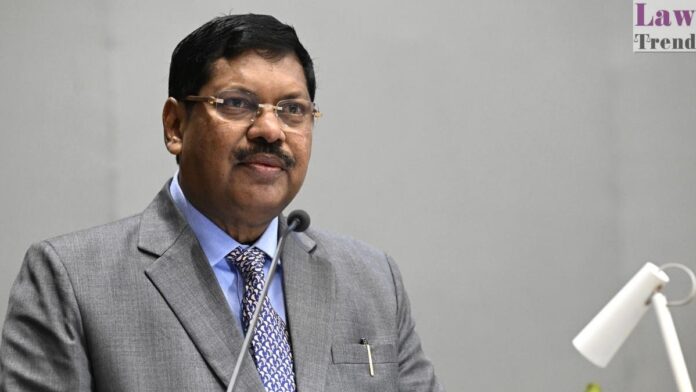Chief Justice of India (CJI) Bhushan Ramkrishna Gavai expressed his disappointment over the absence of senior administrative officials during his maiden visit to Mumbai after assuming office on May 14. Speaking at a felicitation ceremony and state lawyers’ conference organised by the Bar Council of Maharashtra and Goa, CJI Gavai highlighted what he termed as a lapse in protocol during his visit.
Referring to the absence of the Chief Secretary, Director General of Police, and Mumbai Police Commissioner at the event, CJI Gavai remarked, “If the chief secretary of the state, director general of police or Mumbai police commissioner does not want to come there, when the CJI, who is from Maharashtra, has arrived for the first time, it’s up to them to think about whether it is right or not.”
Underscoring the equal status of the three pillars of democracy — the legislature, the executive, and the judiciary — the CJI emphasized the need for mutual respect. “Protocols are not something new, it’s a question of the respect one constitutional body gives to another,” he stated.
Though he clarified that he did not wish to dwell on “small matters”, CJI Gavai asserted that such gestures carry importance. “When the head of a constitutional institution visits the state for the first time, the kind of reception given to them must be considered carefully. These may seem like small matters, but people need to understand their significance,” he added. In a lighter vein, he quipped, “If in my place there was someone else, then the provisions of Article 142 would be considered.”
Constitutional Supremacy and Book Launch
The event also marked the launch of a book authored by the Chief Justice, compiling 50 landmark judgments. Recalling his journey into the judiciary, CJI Gavai shared, “My father told me to take up judgeship as it will help me take forward the work of Dr Ambedkar for the society.”
Reiterating the supremacy of the Constitution, he said, “Neither the judiciary nor the executive is supreme. It is the Constitution that is supreme, and all the three organs must work in coordination.” He further noted that although Parliament holds the power to amend the Constitution, it cannot alter its “basic structure.”
Right to Shelter and Judicial Observations
CJI Gavai also reiterated his strong stance against what has been termed as “bulldozer justice.” Referring to one of his earlier judgments, he said, “The right to shelter is a fundamental right. Whether a person is accused of any crime or convicted, the family’s house, if legally occupied, cannot be removed or demolished. The rule of law has to be followed.”
His remarks come at a time when concerns have been raised over extra-legal demolitions across states. The CJI’s observations emphasized that due process must be respected, irrespective of the circumstances.
The conference, centered on the theme of “judicial overreach,” brought together legal professionals and dignitaries from across the state, and served as a platform for the Chief Justice to reflect on the evolving role of the judiciary and constitutional ethos.




